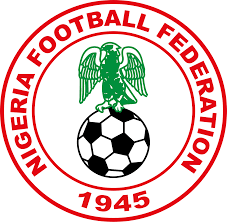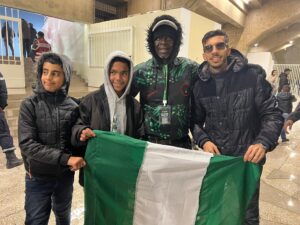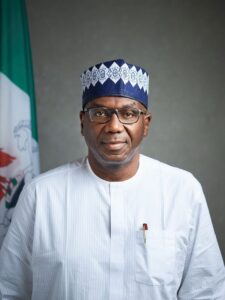
If you want to measure the health of a nation’s football league, don’t listen to the men in agbada speeches at AGM conferences or the press releases announcing “strategic partnerships.” Just look at where her best legs are going. Look at the destinations of the young men who, week in, week out, carry the dreams of fans in Ilorin, Enugu, Port Harcourt, Aba, Ibadan, and Kano.
And when you look—really look—at where our “stars” are fleeing to, the story of the Nigeria Premier Football League (NPFL) is written in painful clarity.
In the past few months alone, the list reads like a geography of exile:
Ojo Olorunleke (Enyimba FC captain, goalkeeper) → moved to Al-Merrikh SC in Sudan.
Jide Fatokun (Remo Stars midfielder) → signed by Al-Merrikh SC of Sudan
Nduka Junior (Remo Stars defender,) → off to Al- Erbil SC Iraq.
Emmanuel Ogbole (Kwara United striker) → shipped to Al Nasr Benghazi in Libya.
Sikiru Alimi (Remo Stars forward) → to Algeria.
Sudan. Libya. Algeria. Iraq. Places where European scouts do not even bother to open Google Maps. Places where leagues are run on survival, not excellence. Yet, these are the “promotions” available to the NPFL’s supposed crown jewels.
Not a single player from our domestic league has walked directly into Europe’s top five leagues—England, Spain, Italy, Germany, France—in years. Not one. Let that sink in. Nigeria, the supposed “Giant of Africa,” where every Sunday preachers summon the God of football destiny, cannot produce a homegrown talent good enough to jump from the NPFL to Europe’s elite.
Instead, the pipeline of Nigerian football talent bypasses the NPFL entirely. The boys who make it to Ajax, Porto, Dortmund, Arsenal, Milan, or Rennes do not wear the jerseys of Shooting Stars or Kano Pillars. They are fished out from academies in Surulere, Jos, Kaduna, or Ikenne. They are whisked straight from “non-league” obscurity to Europe, because the world has long written off our so-called professional league as a bad market.
It says that the NPFL has become a glorified transit camp, a place where even our best players cannot leapfrog into the big leagues, but must instead crawl through the football backwaters of North Africa, Sudan, and the Gulf.
It says that the quality of coaching is suspect. That the training methods are outdated. That the tactical discipline of our teams does not prepare players for the intensity of modern European football.
It says that our administrators, who love to gather for AGM photo-ops in ill-fitting suits, are content with a league that produces no export value.
It says that the NPFL does not inspire confidence in scouts. The world believes our football DNA is intact—but it is hidden in the raw, uncut diamonds of academies. Once those boys touch NPFL soil, their value depreciates like a naira note after a Central Bank policy announcement.
How can it be that Sudanese clubs—clubs from a country battling civil war and economic collapse—can raid Aba, Ilorin, Makurdi, and Ikenne for our finest talents? That Libya, with its fractured football structure, can poach strikers from our best teams? That Iraq, where football survives in a haze of conflict, can sign a Nigerian league champion as a trophy?
This should alarm every single person who claims to love Nigerian football.
Because football, beyond the game itself, is about value creation. Leagues rise or fall on the ability to create value: financial value, player value, fan value. The South African PSL, Morocco’s Botola, even Tanzania’s NBC Premier League, are building reputations by exporting directly to Europe, not by offloading to Sudan.
The NPFL is not creating value. It is draining it. Players leave, not because they are too good for the league, but because the league itself has no future to offer.
And let’s be clear: exporting to Sudan is not progress. It is regression dressed as opportunity. It is a loud siren that the NPFL is broken.
What must be done?
Raise the quality of coaching. Our players look raw because they are raw. Tactical awareness, conditioning, and professionalism must be taught, not assumed.
Improve club professionalism. No serious European club will take a player from a league where contracts are not enforced, wages are owed, and facilities are medieval.
Market the league properly. Visibility drives value. If scouts cannot stream our matches in good quality, how will they judge talent?
Stop lying to ourselves. A player moving from Remo Stars to Algeria is not progress. It is a symptom of decline.
Until the NPFL creates value, our best legs will continue to run—not to London or Milan, but to Benghazi and Omdurman. Until then, Nigerian football’s greatest paradox will persist: a country with limitless talent, but a league that produces no stars.
As my father would say, “Nigeria is not a footballing nation. Nigeria is a nation of footballing potential.” And potential, left untapped, is a kind of tragedy


